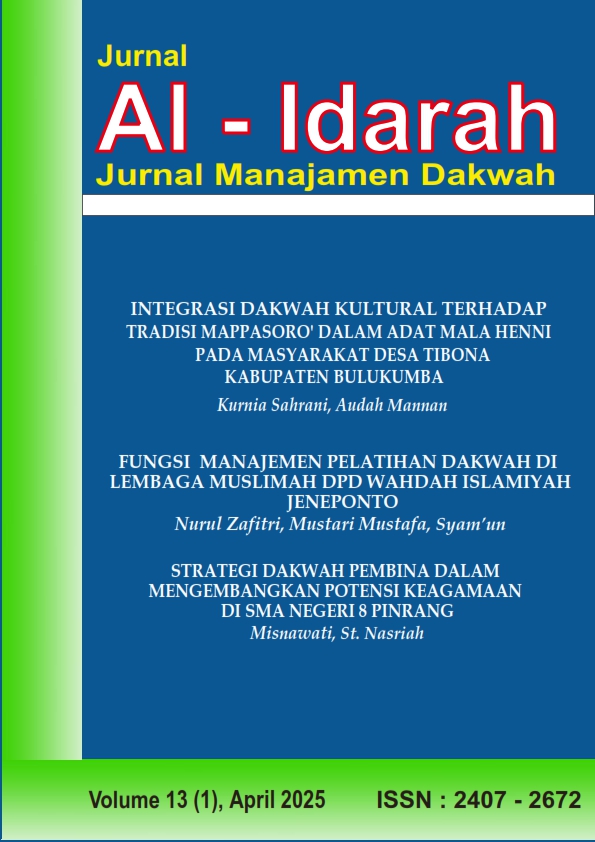INTEGRASI DAKWAH KULTURAL TERHADAP TRADISI MAPPASORO’ DALAM ADAT MALA HENNI PADA MASYARAKAT DI DESA TIBONA KABUPATEN BULUKUMBA
Abstract
This study examines the integration of cultural dakwah in the Mappasoro’ tradition in Tibona Village, Bulukumba Regency. The research focuses on two main questions: (1) How is the Mappasoro’ tradition practiced within the Mala Henni custom among the Tibona community? (2) What forms of cultural dakwah integration are present in the Mappasoro’ tradition under the Mala Henni custom?
Using a qualitative descriptive analytical approach, data was collected through observation, in depth interviews with religious leaders and tradition practitioners, and documentary studies. Data analysis techniques included reduction, presentation, comparative analysis, and conclusion drawing, with validity ensured through triangulation.
The findings reveal that the Mappasoro’ tradition is performed on the fourth day after a person’s death. Involving stages of preparation, prayer recitation, offering preparation, and delivery to religious figures. Cultural dakwah integration manifests through tendency (reinforcing spiritual values like prayer and kinship) and consistency/repetition (upholding virtuous acts such as charity and mutual respect). This approach successfully harmonizes Islamic teachings with local culture without conflict.
The study highlights the importance of cultural dakwah that respects local wisdom to effectively convey Islamic messages. For the community, it demonstrates that traditions can be preserved if they align with sharia principles. Academically, the research contributes to developing culturally grounded dakwah strategies.


